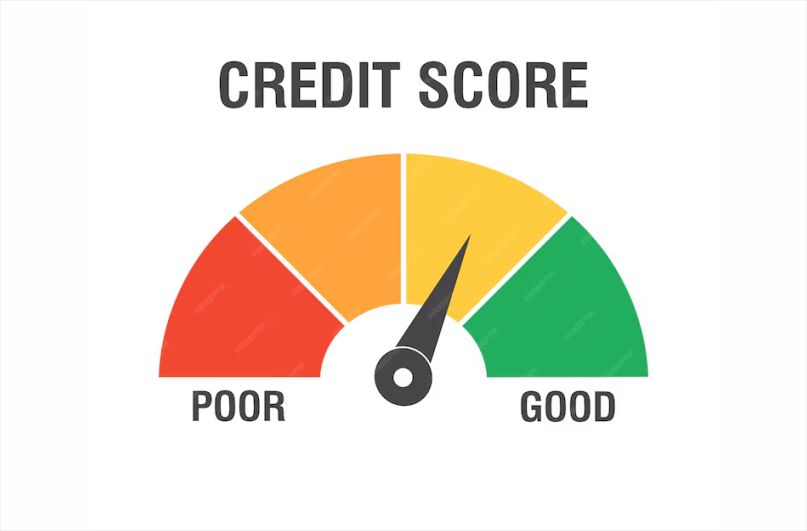Mastering financial responsibility is the key to a stable and stress-free life. When you practice financial discipline, you control your spending, save consistently, and prepare for the future.
Are you living within your means, or are you stuck in a cycle of debt? A solid budgeting plan helps you track income and expenses, while smart savings strategies build long-term security.
Learn how to build an emergency fund to handle unexpected costs. At The Conducts of Life, financial responsibility isn’t just about numbers, it’s about making money work for you.
Ready to take control? Let’s break it down step by step.
Key Takeaways
- Financial responsibility means managing money wisely to ensure stability, security, and long-term financial success.
- Budgeting and distinguishing needs from wants help control spending and avoid unnecessary financial stress.
- Smart saving and investing strategies build wealth and protect against unexpected financial hardships.
- Budgeting and cash flow management ensures financial stability, preventing cash shortages despite profitability.
- Reinvesting profits and practicing ethical financial decisions fuel long-term business growth and trust.
Table of Contents
- Key Takeaways
- What Is Financial Responsibility?
- The Core Principles of Financial Responsibility
- Budgeting for Financial Stability
- Debt Management: Staying in Control
- Smart Saving and Investing for the Future
- Building and Protecting Your Credit Score
- Practicing Financial Discipline and Avoiding Lifestyle Inflation
- Financial Responsibility in Relationships and Family Life
- Financial Responsibility for Entrepreneurs and Business Owners
- Frequently Asked Questions
- Conclusion

What Is Financial Responsibility?
Financial responsibility is the ability to manage your money wisely so you can meet your needs, handle emergencies, and build a secure future. It means making smart choices about budgeting, saving, investing, and spending to avoid debt and financial stress.
When you take control of your finances, you create stability in both your personal and professional life.
Why Financial Discipline Matters
Are you in control of your spending, or does your money disappear before the next paycheck?
Financial discipline helps you set clear goals, track expenses, and avoid impulse spending.
It keeps you focused on long-term priorities like building an emergency fund, reducing debt, and investing for the future.
Without discipline, financial setbacks can feel overwhelming.
How Financial Responsibility Impacts Your Life
Being financially responsible isn’t just about numbers, it shapes your daily life and future in these ways:
- Personal Life: Helps you cover essentials, plan for unexpected expenses, and achieve milestones like home ownership and retirement.
- Career Growth: Employers value those who manage money well, showing reliability and strategic thinking.
- Economic Security: Financially responsible people are better prepared for job loss, inflation, or market downturns.
Smart Financial Habits to Build
At The Conducts of Life, we believe financial success comes from consistent, responsible habits:
- Live Within Your Means: Spend less than you earn and avoid unnecessary debt.
- Create a Budget: Track your income and expenses to control spending.
- Save Consistently: Build an emergency fund and invest for future growth.
- Manage Debt Wisely: Pay off high-interest debt first and borrow only when necessary.
- Plan for Retirement: Start investing early to secure financial independence.
Take Charge of Your Financial Future
Your financial choices today shape your future. Whether you’re working to eliminate debt, grow your savings, or invest wisely, responsible money management leads to financial freedom.
Ready to take control? Start now with small, consistent steps, and watch your financial health improve over time.
The Core Principles of Financial Responsibility

Financial responsibility is about making intentional choices with your money.
It’s not just about earning more; you should manage what you have wisely.
At The Conducts of Life, we emphasize practical steps to help you spend wisely, save consistently, and build long-term security.
Live Within Your Means
Are you spending more than you earn? Living within your means ensures financial stability.
The best way to do this is through budgeting, allocating your income to necessary expenses while keeping spending in check.
A well-planned budget helps you track where your money goes and prevents financial stress.
Needs vs. Wants: A Critical Distinction
Understanding the difference between needs and wants is key to financial responsibility.
Needs include food, shelter, and healthcare, things essential for survival. Wants are non-essentials that improve lifestyle but aren’t necessary.
If you struggle with impulse spending, ask yourself: Do I need this, or do I just want it? Prioritizing needs over wants keeps your finances in control.
The Power of Saving
Unexpected expenses can throw your finances off balance. That’s why building an emergency fund is crucial.
Whether it’s a medical bill or a car repair, having money set aside protects you from debt.
Beyond emergencies, savings should support future goals like retirement, home ownership, or education. Setting clear financial targets makes it easier to stay on track.
Build Financial Literacy
How well do you understand your finances? Financial literacy helps you make informed decisions about budgeting, investing, and debt management.
Learning about personal finance gives you the confidence to make better money choices.
At The Conducts of Life, we encourage ongoing education to strengthen financial responsibility.
Take Control of Your Financial Future
Financial responsibility isn’t about perfection, but progress. Spending wisely, saving consistently, and staying informed lead to long-term financial security.
The choices you make today shape your future. Are you ready to take control? Start now, and set yourself up for success.
Budgeting for Financial Stability
Budgeting is like creating a financial game plan. It helps you control your money, avoid unnecessary debt, and reach financial goals.
Without a budget, it’s easy to overspend and wonder where your paycheck went.
At The Conducts of Life, we believe a structured budget keeps your finances in check and allows you to plan for the future.
Choosing a Budgeting Method That Works for You
Not all budgets work the same way. The best approach depends on your income, expenses, and financial priorities.
Here are three proven methods:
1. Zero-Based Budgeting: Give Every Dollar a Job
With zero-based budgeting, every dollar you earn is assigned to a category, whether it’s expenses, savings, or debt repayment.
By the end of the month, your budget should balance out to zero. This method forces you to be intentional about spending and prevents wasteful habits.
2. The 50/30/20 Rule: Keep It Simple
This budgeting rule splits your income into:
- 50% for needs (housing, food, transportation, and bills)
- 30% for wants (entertainment, dining out, hobbies)
- 20% for savings and debt repayment
It’s a simple and balanced way to manage money without overcomplicating your budget.
3. The Envelope System: Cash for Better Control
If you struggle with overspending, the envelope system might help. You set aside cash in labeled envelopes for different expenses, groceries, gas, dining out, etc.
Once an envelope is empty, you stop spending in that category. This hands-on approach keeps you accountable and limits impulse purchases.
Why Budgeting Matters
A budget isn’t about restriction, but making your money work for you.
When you budget, you’re not just tracking expenses; you’re actively planning for financial stability.
At The Conducts of Life, we emphasize sustainable money habits to help you build a secure future.
Are you ready to take control of your finances? Start budgeting today and watch your financial confidence grow.
Debt Management: Staying in Control

Debt isn’t always a bad thing, but how you manage it makes all the difference.
Some debts help you build wealth, while others drain your finances.
Understanding the difference and making smart repayment choices will keep you from feeling overwhelmed.
Good Debt vs. Bad Debt
Not all borrowing works against you. Some debts add value over time, while others lead to financial stress.
Good Debt
Good debt helps you build assets or increase your earning potential. Examples include student loans, mortgages, and business loans.
These investments can provide long-term benefits when managed properly.
Bad Debt
Bad debt comes from borrowing for things that lose value or don’t generate income, such as credit card debt from luxury purchases or payday loans with high interest rates.
These debts grow quickly and make financial stability harder to achieve.
Before taking on debt, ask yourself: Will this help me build wealth, or will it hold me back?
Smart Ways to Pay Off Debt
If you’re in debt, having a clear repayment strategy is key. Here are two proven methods:
1. The Debt Snowball Method: Small Wins First
Pay off your smallest debts first while making minimum payments on larger ones. As each balance disappears, you gain momentum and motivation to tackle bigger debts.
2. The Debt Avalanche Method: Save More on Interest
Focus on paying off high-interest debts first. This method saves you money over time and speeds up your journey to becoming debt-free.
Choose the strategy that keeps you motivated and works best for your financial situation.
Avoid Common Debt Traps
Debt becomes a problem when spending gets out of control. Watch out for these common mistakes:
- Ignoring your budget: If you don’t track spending, debt can pile up fast.
- Making only minimum payments: Interest adds up quickly when you don’t pay more than the minimum.
- Taking out high-interest loans: Payday loans and credit cards with high APRs can trap you in a cycle of debt.
Take Control of Your Financial Future
Debt doesn’t have to control you. With the right approach, you can stay ahead, pay off what you owe, and build a stable financial future. Start today, your future self will thank you.
Smart Saving and Investing for the Future

Saving and investing serve different purposes, but both are key to building financial security.
Knowing when to save and when to invest helps you prepare for both short-term needs and long-term growth.
Saving: Your Safety Net
Saving means setting aside money for emergencies, short-term goals, or planned expenses.
You’ll want your savings to be easy to access when needed. Common places to store savings include:
- Savings accounts: Earns interest while keeping your money available.
- Money market accounts: A safe option with slightly higher interest rates.
- Certificates of deposit (CDs): Locks in your money for a set period in exchange for higher returns.
A solid rule is to have three to six months’ worth of expenses saved to cover unexpected costs like medical bills or car repairs.
Investing: Growing Your Wealth
Investing helps your money grow over time. Unlike saving, investing comes with risk but also higher potential returns.
Common investment options include:
- Stocks: Partial ownership in companies with growth potential.
- Bonds: Loans to corporations or governments that pay interest over time.
- Real estate: Buying property to rent out or sell for profit.
Investing requires patience. The longer you keep money in investments, the more you benefit from compound interest and market growth.
Planning for Retirement
Saving for retirement ensures you have money when you stop working. Some of the best ways to do this include:
- 401(k) plans: Many employers offer these tax-advantaged accounts, sometimes with matching contributions.
- Individual Retirement Accounts (IRAs): Traditional and Roth IRAs offer tax benefits that help your retirement savings grow.
Starting early gives you more time for your money to grow, but it’s never too late to start. The key is consistency.
Building Passive Income
Relying on a paycheck alone can limit your financial growth. Passive income creates additional streams of cash flow, reducing financial stress. Some ways to generate passive income include:
- Rental properties: Earn money from tenants while your property increases in value.
- Dividends from stocks: Certain stocks pay shareholders regular profits.
- Royalties from creative work: Earn from books, music, or digital products.
A mix of saving, investing, and passive income gives you more financial freedom over time.
Take Control of Your Financial Future
The best time to start saving and investing is now. A little effort today can lead to big rewards later.
Take small steps, stay informed, and watch your money work for you when you master money management.
Building and Protecting Your Credit Score

A credit score is a numerical rating that reflects your creditworthiness, influencing loan approvals, interest rates, rental agreements, and financial opportunities.
Your credit score affects more than just loans, it can impact interest rates, rental approvals, and even job opportunities.
Understanding how to build and protect it puts you in control of your financial future.
How to Build Your Credit Score
A strong credit score starts with smart financial habits. Here’s what you can do:
- Pay bills on time: Late payments hurt your score. Set up reminders or automate payments to stay on track.
- Keep credit utilization low: Use less than 30% of your available credit. If your limit is $10,000, try to keep your balance below $3,000.
- Check your credit report: Errors can drag your score down. Review your report regularly and dispute mistakes.
- Maintain long-term accounts: The longer your credit history, the better. Closing old accounts can reduce your score.
- Use different types of credit: A mix of credit cards, loans, and other accounts shows lenders you can handle different forms of debt.
What Can Hurt Your Credit Score?
Avoiding common credit mistakes helps protect your score. Be mindful of:
- Missed payments: Payment history is the biggest factor in your credit score. Even one missed payment can have lasting effects.
- Maxing out credit cards: High balances signal financial trouble to lenders. Keep spending in check to avoid damaging your score.
- Opening too many accounts at once: Multiple hard inquiries can lower your score and make lenders wary. Space out credit applications when possible.
- Ignoring credit report errors: Inaccuracies can cost you points. Dispute incorrect information with credit bureaus.
Stay in Control of Your Credit
Building and protecting your credit score is an ongoing process. Small, smart decisions add up over time.
Pay attention to your spending, track your credit usage, and make informed financial choices.
A strong credit score opens doors, keep it working in your favor.

Practicing Financial Discipline and Avoiding Lifestyle Inflation
Have you ever noticed that as your income increases, so do your expenses? That’s lifestyle inflation.
Instead of saving or investing extra income, you might start spending more, upgrading your car, dining out frequently, or moving into a pricier home.
While these changes may feel like rewards for your hard work, they can trap you in a cycle where no matter how much you earn, you never seem to get ahead financially.
How to Break Free from Lifestyle Inflation
The key is financial discipline, being intentional with your money so it works for you instead of slipping through your fingers.
Here’s how you can take control:
1. Set Clear Financial Goals
What do you want your money to do for you? Whether it’s buying a home, retiring early, or building an emergency fund, defining your financial priorities keeps you focused.
2. Create and Stick to a Budget
A budget isn’t about restricting yourself; it’s about directing your money where it matters.
Track your income, expenses, and savings to ensure you’re not spending more just because you’re earning more.
3. Differentiate Between Wants and Needs
Before making a purchase, ask yourself:
Do I need this, or do I just want it?
Delaying gratification helps you build wealth instead of wasting money on fleeting pleasures.
4. Pay Yourself First
Treat saving and investing like a non-negotiable expense. Set up automatic transfers to your savings or investment accounts before spending on anything else.
5. Avoid Lifestyle Comparisons
Just because someone else is buying a new car or taking luxury vacations doesn’t mean you need to. Focus on your financial goals, not someone else’s spending habits.
The Power of Financial Discipline
True wealth isn’t about how much you earn, it’s about how much you keep and grow.
If you can resist the urge to increase spending with every raise, you’ll build a strong financial future.
Are you ready to take control of your finances and break free from lifestyle inflation? Start by reviewing your expenses today and identifying areas where you can save.
The sooner you start, the more financial security you’ll have in the long run.
Financial Responsibility in Relationships and Family Life

Money isn’t just about numbers, it affects trust, security, and the future you’re building together.
If you and your partner aren’t on the same page financially, it can lead to stress, misunderstandings, and even conflict.
But when you work as a team, financial planning strengthens your bond and helps you achieve common goals.
How to Manage Finances as a Team
1. Talk Openly About Money
Avoiding financial discussions doesn’t make problems disappear. Be honest about your income, debts, spending habits, and financial goals.
Regular money check-ins help prevent surprises and keep both of you accountable.
2. Set Shared Financial Goals
Do you want to buy a home, save for retirement, or plan a family vacation? Aligning your financial priorities makes it easier to create a budget that works for both of you.
3. Create a Budget That Works
Decide how to split expenses, equally, based on income percentage, or in another way that feels fair.
Track spending and adjust as needed to stay on top of bills, savings, and unexpected costs.
4. Avoid Secret Spending and Debt
Financial infidelity, hiding purchases or debts, can damage trust. Be transparent about major expenses and discuss big financial decisions before making them.
Teaching Kids About Money
1. Lead by Example
Kids learn by watching you. If they see you budgeting, saving, and making thoughtful purchases, they’ll pick up those habits, too.
2. Make Saving a Habit
If your child gets an allowance, encourage them to set aside a portion for savings. Help them set goals, whether it’s for a toy, a gadget, or their future education.
3. Involve Them in Family Budgeting
Let kids see how money works in real life. Show them how you plan for groceries, bills, and savings.
Even small lessons, like comparing prices at the store, can make a big impact.
Strengthening Financial Stability as a Family
Money should bring security, not stress. Open conversations, shared goals, and good financial habits help build a stable future.
Start small, whether it’s a budget talk with your partner or teaching your kids the value of saving.
The choices you make today shape your family’s financial future.
Are you ready to take control of your household finances? Start by setting one financial goal this week and work toward it together.
Financial Responsibility for Entrepreneurs and Business Owners

Running a business isn’t just about making sales, but keeping your finances in check.
Without financial responsibility, even a profitable business can struggle. If you don’t plan where your money goes, you might find yourself short on cash when you need it most.
So, how do you take control? It starts with budgeting, cash flow management, reinvesting profits, and making ethical financial decisions.
1. Budgeting: Your Business Roadmap
A budget isn’t just numbers on a spreadsheet, it’s your guide to financial stability.
It helps you track income, control expenses, and plan for future growth.
How to Build a Budget That Works
- Track Every Dollar: Know exactly where your money is going.
- Plan for Fixed and Variable Costs: Cover rent, salaries, and utilities while setting aside funds for unexpected expenses.
- Set Profit Goals: Decide how much you need to earn after covering costs.
When you budget wisely, you avoid financial surprises and gain confidence in your decisions.
2. Cash Flow: Keeping Your Business Running
Cash flow is the money moving in and out of your business. Even if you’re profitable on paper, poor cash flow can leave you struggling to pay bills.
How to Maintain a Positive Cash Flow
- Invoice Promptly: Don’t let unpaid invoices pile up. Send them out on time and follow up when necessary.
- Cut Unnecessary Expenses: Review subscriptions, services, or products that aren’t providing value.
- Forecast Cash Flow: Look ahead to predict when you might face shortages and plan accordingly.
Good cash flow management keeps your business running smoothly, giving you the flexibility to seize new opportunities.
3. Reinvesting Profits: Fueling Growth
Instead of spending all your profits, put some back into your business. This helps you expand, improve operations, and stay competitive.
Smart Ways to Reinvest
- Upgrade Technology: Invest in tools that improve efficiency.
- Marketing and Advertising: Reach more customers and grow your brand.
- Employee Training: Build a stronger, more skilled team.
Reinvesting keeps your business moving forward instead of staying stagnant.
4. Ethical Financial Practices: Building Trust
Money decisions aren’t just about profits, they also reflect your business values.
Transparency and honesty build trust with clients, employees, and investors.
How to Stay Financially Responsible
- Keep Accurate Records: Maintain clear financial statements and reports.
- Pay Taxes on Time: Avoid penalties and legal trouble by staying compliant.
- Be Honest with Stakeholders: Whether it’s pricing, expenses, or profits, integrity matters.
A business that values ethics creates long-term success—not just short-term gains.
Take Charge of Your Business Finances
Financial responsibility is about creating stability so your business can thrive.
Start by improving your budgeting, managing cash flow wisely, reinvesting in growth, and making ethical decisions.
The way you handle money today shapes the future of your business.
Are you ready to take control? Start with one financial change this week and build from there.
The Psychology of Money: How Your Mind Shapes Your Finances
Managing money isn’t just about numbers, it’s about emotions, habits, and beliefs.
The way you think about money affects how you spend, save, and invest. If financial stress keeps you up at night or influences your decisions, you’re not alone.
Many people struggle with anxiety, impulsive spending, or fear of financial planning.
The good news is that you can take control by understanding your money mindset and making intentional changes.
How Emotions Influence Financial Decisions
Money triggers strong emotions like fear, guilt, excitement, or even shame.
These feelings shape financial behaviors in ways you may not realize.
Shopping might become a way to relieve stress, leading to unnecessary spending.
On the other hand, fear of financial insecurity might make you hold onto money so tightly that you avoid smart investment opportunities.
Some people deal with money stress by ignoring bills and avoiding financial planning altogether, which only makes things worse.
Recognizing these emotional patterns is the first step toward making better financial choices.
Breaking Free from Financial Stress
If money worries take over your thoughts, start by identifying what triggers your stress.
Do you feel anxious after checking your bank account? Does an unexpected expense make you panic?
Awareness of these patterns helps you take control. Practicing mindfulness can also help.
Instead of letting money worries consume you, focus on what you can control.
Simple habits like deep breathing or writing down financial goals can shift your perspective.
Talking about money can also relieve stress. Keeping financial concerns to yourself only amplifies the pressure, so discussing your situation with a trusted friend, financial advisor, or even a therapist can make a difference.
Shaping a Positive Money Mindset
A healthy relationship with money starts with setting clear goals. When you break big financial targets into smaller, manageable steps, progress feels less overwhelming.
Budgeting doesn’t have to be complicated either.
A simple plan that tracks income, expenses, and savings keeps you on course without feeling restrictive.
Celebrating small financial victories, like saving a set amount or sticking to a spending plan, reinforces good habits.
Instead of rewarding progress with more spending, find ways to acknowledge achievements without derailing your goals.
Money Habits That Build Confidence
Paying yourself first by setting aside savings before covering other expenses ensures long-term financial stability.
When faced with a purchase, asking yourself whether it’s a necessity or an emotional decision helps prevent unnecessary spending.
Educating yourself about personal finance is another way to strengthen financial confidence.
Reading books, listening to finance podcasts, or taking online courses can give you the knowledge needed to make informed decisions.
Take Charge of Your Financial Future
When you manage your emotions around money, you make smarter decisions and build a future that aligns with your goals.
Start by making one small change today, and over time, those small steps will lead to lasting financial confidence.
What’s one money habit you can change right now?
Frequently Asked Questions
What are the first steps to financial responsibility?
Start with budgeting, tracking expenses, saving consistently, and avoiding unnecessary debt to build financial security.
How can I build an emergency fund?
Set aside a small amount regularly until you have three to six months of expenses saved.
What’s the best way to pay off debt quickly?
Use the debt snowball or avalanche method—focus on paying off high-interest debts first.
How can budgeting help entrepreneurs manage their business finances effectively?
Budgeting provides a clear financial roadmap, helping entrepreneurs track income, control expenses, and plan for future growth, ensuring financial stability.
Why is cash flow management essential for business success?
Positive cash flow ensures businesses can pay bills, reinvest, and seize new opportunities, preventing financial struggles despite being profitable on paper.
Conclusion
Mastering financial responsibility is a lifelong journey that leads to stability, security, and financial freedom.
By living within your means, budgeting effectively, saving consistently, and managing debt wisely, you create a foundation for long-term success.
Understanding the difference between needs and wants helps you control spending, while smart investments build future wealth.
At The Conducts of Life, we believe financial literacy empowers you to make informed money decisions.
Whether you’re starting small or refining your strategies, taking control today ensures a stress-free tomorrow.
Are you ready to build a financially responsible future? Start now, and secure your financial well-being.
Pious Clements is the insightful voice behind "The Conducts of Life" blog, where he writes about life ethics, self-development, life mastery, and the dynamics of people and society.
With a profound understanding of human behaviuor and societal dynamics, Pious offers thought-provoking perspectives on ethical living and personal growth.
Through engaging narratives and astute observations, he inspires readers to navigate life's complexities with wisdom and integrity, encouraging a deeper understanding of the human experience and our place within society.

